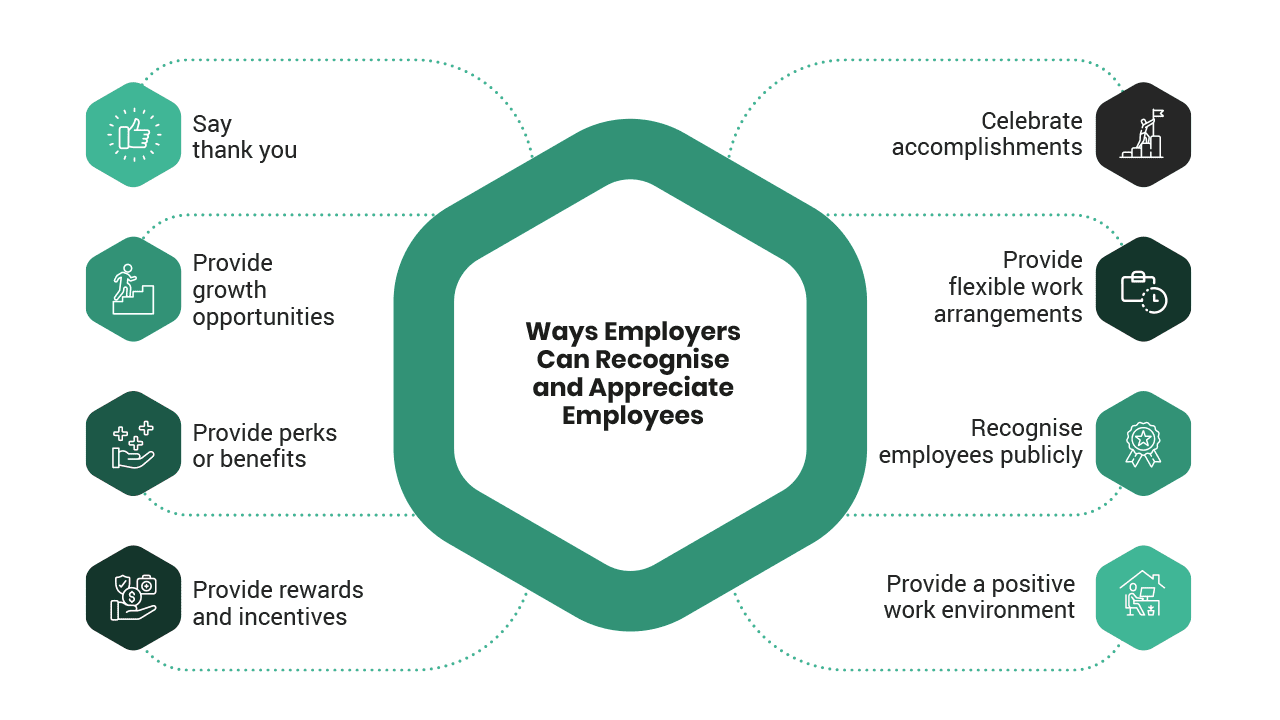People work for money but go the extra mile for recognition, praise, and rewards. ~ Dale Carnegie
International Workers’ Day, also known as Labour Day, is celebrated annually on May 1st globally. This day is meant to commemorate workers’ contributions, achievements, and struggles in different sectors worldwide. On this day, we recognise the importance of the labour force and how it has been pivotal for the growth and development of societies.
The truth is that recognising and appreciating employees is essential to a successful organisation.
It is important to note that celebrating Worker’s Day is not only about monetary rewards. While bonuses and promotions are appreciated, recognition, appreciation, and gratitude go a long way in building a positive workplace culture. It is a simple gesture that can make a difference in employees’ lives, promote job satisfaction, and inspire them to work harder toward achieving the company’s goals.
In this article, we explore the importance of recognising and appreciating employees, especially in relation to Workers’ Day.
Here are a few reasons why you must appreciate and recognise employees
Employee Motivation:
Recognising and appreciating employees is a form of motivation that can increase productivity and job satisfaction. When employees feel appreciated, they are motivated to work harder and are more likely to stay committed to their work. This enhances the overall organisation’s productivity, ultimately benefiting both the employees and the company. Without motivation, employees may lose morale and become unproductive. They can also become intrigued by negative emotions such as resentment, resulting in high staff turnover, damaging an organisation’s reputation and hindering productivity.
Employee Retention:
Appreciation and recognition of employees are fundamental factors that allow organisations to retain their staff. Staff members have a considerable impact on customer satisfaction and high-quality service delivery. It is vital to recognise the effort made by employees to enhance their performance and contribute to the organisation’s progress. Recognising employees prevents staff turnover, which can negatively impact the organisation’s progress, productivity, and long-term viability.
Improved Employee Engagement:
Employee engagement is the extent to which employees feel passionate about working for their organisation and are committed to achieving its objectives. Recognition and appreciation of employees can positively impact employee engagement by creating a positive working environment that encourages employee participation, commitment, and involvement in achieving organisational goals. By showing appreciation and recognising employees’ efforts, employees will likely feel more engaged and committed, ultimately enhancing the organisation’s performance.
Positive Workplace Culture:
The culture of an organisation reflects its values, beliefs, and attitudes. Recognition and appreciation of employees contribute greatly to the development of a positive company culture that enhances teamwork, employee participation, and loyalty. Company culture affects how employees interact with each other and with customers. By recognising and appreciating employees, organisations create a culture of respect and recognition that benefits all employees, leading to a better work environment and increased productivity.
Increased Trust and Communication:
Recognising and appreciating employees is vital in establishing trust between employees and management. It demonstrates the organisation’s recognition of the employees’ contributions to organisational development and growth. By showing this recognition, staff members can build trust in management, enhancing communication, collaboration, and teamwork. Trust improves communication between managers and employees, enhancing productivity and overall organisational effectiveness.
Enhancement of teamwork and collaboration:
For organisations to succeed, employees need to work together and collaborate effectively toward achieving the organisation’s goals. However, departmental silos can hinder information sharing, leading to inefficiencies in teamwork and a decrease in productivity. Recognition and appreciation of employees can support breaking down departmental silos encouraging cross-functional collaboration, and leading to efficient teamwork that improves overall organisational effectiveness.
Enhanced employer brand:
Organisations known for their positive workplace culture and commitment to employee recognition and appreciation are more likely to attract top talent and be seen as an employer of choice in their industry.
Studies have shown that peer recognition is highly valuable and often drives employees to do their best work. Establishing a culture of recognition within the workplace is important, where good work is applauded, and rewards are often given out.
Here are a few simple ways to show appreciation and recognition to employees:
In simple terms, recognition is about what people do; appreciation is about who they are.
-
Say thank you:
A simple and effective way to show appreciation is to say thank you. This can be done in person, through an email, or a handwritten note, and it can be instrumental in making employees feel valued and appreciated.
-
Celebrate accomplishments:
Celebrate individual or team accomplishments in the workplace—for example, a public announcement of successful project completion or a small celebration for a work anniversary.
-
Provide growth opportunities:
Encouraging professional development through training or mentorship can help employees feel valued and supported.
-
Provide flexible work arrangements:
Allowing flexible work arrangements, such as telecommuting, flexible schedules, or job sharing, can be a great way to show appreciation for employees’ needs and help employees achieve a better work-life balance.
-
Recognise employees publicly:
Recognise employees publicly through social media or internal communications platforms. This can help to boost morale and show the wider community the organisation’s commitment to its employees.
-
Provide rewards and incentives:
Offering rewards and incentives such as bonuses, gift cards, or company swag can be an excellent way to show appreciation for employee contributions. Also, providing employees extra benefits, such as gym memberships, additional vacation days, or paid time off for volunteering, can help employees feel valued and appreciated.
-
Create a positive work environment:
Creating a positive and supportive work environment can help in making employees feel valued and appreciated. This can include a supportive management style, open communication, and opportunities for feedback.
In conclusion, it is important to be consistent in recognising and appreciating employees. Recognition should not be a one-time event but an ongoing practice that is integrated into the company culture. Creating a positive work culture, providing professional development opportunities, and celebrating employee milestones are just a few ways to show employees appreciation. By recognising their efforts and contributions, employers can create a conducive work environment and set the stage for long-term success for both employees and organisations.
Written by:
Anjolaoluwa Onireti
Analyst


